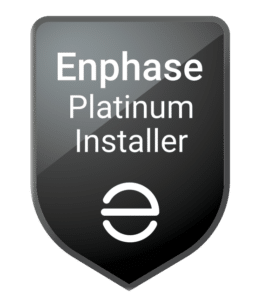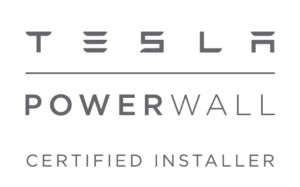Massachusetts is one of the best places in the country to go solar, thanks to a wide range of tax benefits and financial incentives.
Many of these programs are here to stay. But one of the biggest, the 30% federal tax credit for solar panels, is ending soon. To claim it for residential solar panels, you need to complete your installation by the end of 2025.
Keep reading to learn more about what’s available and how much you could save.
Residential Solar Incentives in Massachusetts
Save on home solar with these incentives for residential solar panels in Massachusetts:
| Incentive | Expected Savings |
| Federal Solar Tax Credit | 30% of total solar installation costs. Must install by December 31, 2025 to qualify! |
| Massachusetts Residential Energy Credit | $1,000 |
| Net Metering | Savings vary by system and electricity usage. Potential to decrease your electric bill to $0. |
| Renewable Energy Credits (RECs) | Earn one REC for every MWh of renewable electricity your solar panels generate. |
| Renewable Energy Property Tax Exemption | 100% exemption on the added assessed value of your solar system for 20 years. |
Federal Solar Tax Credit
The federal solar tax credit (formally known as the Residential Clean Energy Credit) reduces your federal income tax liability by 30% of your total solar installation costs for the year you install your system. Almost all expenses related to a home solar installation are eligible for the tax credit, including solar battery storage.
But this major incentive is set to expire for residential solar panel systems at the end of 2025. To claim it, your system must be installed before the last day of the year. Reach out to My Generation Energy today to start your installation before it’s too late.
Massachusetts Residential Energy Credit
The Residential Energy Credit is a state tax incentive for solar panels in Massachusetts, specifically. It saves you 15% on home solar panels, up to $1,000.
Net Metering
Net metering lets you earn utility credits for the extra solar power your system sends to the grid. When you use more electricity than you produce, those credits help offset your utility bill. In Massachusetts, all investor-owned utilities must offer net metering and pay you the full retail rate for your solar energy.
Renewable Energy Credits
Renewable energy credits (RECs) are an incentive that allows you to get paid just for generating power with your solar panels. You earn one REC for every megawatt-hour of electricity you generate, and you can sell them for cash. Utility companies buy RECs because they can count the solar energy generation the REC represents toward their Renewable Portfolio Standard (RPS) requirements.
Renewable Energy Property Tax Exemption
Solar panels can increase your home’s value, but they won’t increase your property taxes. In Massachusetts, residential solar systems with a capacity of 25 kW or less are exempt from property tax assessments for 20 years.
Commercial Solar Incentives in Massachusetts
Commercial solar incentives reduce installation costs and increase return on investment. Here are some of the best for 2025:
| Incentive | Expected Savings |
| Investment Tax Credit (ITC) | 30% of total solar installation costs. Must begin construction by July 4, 2026 and complete within four years or place in service by December 31, 2027 to qualify. |
| Direct Pay Credit for Tax-Exempt Organizations | 30% of total solar installation costs. Must begin construction by July 4, 2026 and complete within four years or place in service by December 31, 2027 to qualify. |
| Modified Accelerated Cost Recovery System (MACRS) | A tax depreciation system that allows businesses to recover their investment in solar panels faster through annual deductions. |
| Bonus Depreciation | Optional 100% first-year bonus under MACRS to speed up ROI |
| Net Metering | Savings vary by system and electricity usage. Potential to decrease your electric bill to $0. |
| Renewable Energy Credits (RECs) | Earn one REC for every MWh of renewable electricity your solar panels generate. |
| Solar Massachusetts Renewable Target Program (SMART) | Receive an incentive payment for every kWh of solar electricity you produce. Rates are fixed and vary by system. |
| Renewable Energy Property Tax Exemption | 100% exemption on the added assessed value of your solar system for 20 years, for systems 24 kW or less. |
Investment Tax Credit
The Investment Tax Credit, also known as the commercial solar tax credit, reduces your federal income tax liability by 30% of your total solar installation costs for the year you install your system. The ITC is the best commercial solar incentive currently available and makes solar energy significantly more affordable for businesses. Almost all expenses related to a commercial solar installation are eligible for the tax credit, including materials (PV panels, batteries, mounting equipment, etc), labor, and permitting fees.
Solar Tax Credit—Direct Pay
Tax-exempt organizations that cannot benefit from tax credits are eligible for a direct payment worth 30% of their total solar installation costs in place of the solar tax credit. Most tax-exempt organizations are eligible, including nonprofits such as schools and religious groups, state and local governments, Tribal and Native Entities, and Rural Energy Cooperatives.
Modified Accelerated Cost Recovery System (MACRS)
The Modified Accelerated Cost Recovery System is a tax depreciation method that allows businesses to recover their investment in a solar energy system through annual deductions over a 5-year period. This makes it easier for your business to quickly recover the costs of your solar installation investment.
Bonus Depreciation
Under MACRS, tax law offers 100-percent, first-year ‘bonus’ depreciation for qualified commercial solar energy systems. Taxpayers may elect out of the first-year depreciation and opt for a 5-year MACRS schedule if they wish.
Net Metering for Businesses
Commercial solar systems in Massachusetts can earn credits through net metering by sending excess electricity to the grid. These credits reduce your utility bills and can roll over month to month, letting you bank credits during the summer to use during lower-output winter months.
Renewable Energy Credits (RECs)
Businesses can earn RECs by generating solar electricity, which can be sold on an open market for additional revenue. You earn one REC for every megawatt-hour of electricity you generate.
Solar Massachusetts Renewable Target Program (SMART)
The SMART program provides monthly incentive payments to businesses that install solar panels and interconnect with Eversource, National Grid, or Unitil. You’re paid at a fixed rate per kWh of electricity you produce, and rates vary by system. The value is higher for standalone systems. The recently launched SMART 3.0 program will provide more value to non-standalone systems.
Property Tax Exemptions
Commercial solar panels can increase the value of your building, but that doesn’t always mean they increase your property taxes. Many Massachusetts municipalities offer property tax exemptions or credits for commercial solar installations.
Make the Most of Massachusetts Solar Incentives
There’s never been a better time to install solar panels in Massachusetts. My Generation Energy can help you take full advantage of the tax credits and incentives available before federal tax credits expire.
We’re a locally owned solar company that’s been serving Cape Cod, the South Shore, the South Coast, and the Greater Boston area since 2008. We’ll guide you through the incentive process and help you claim every dollar you’re eligible for.





